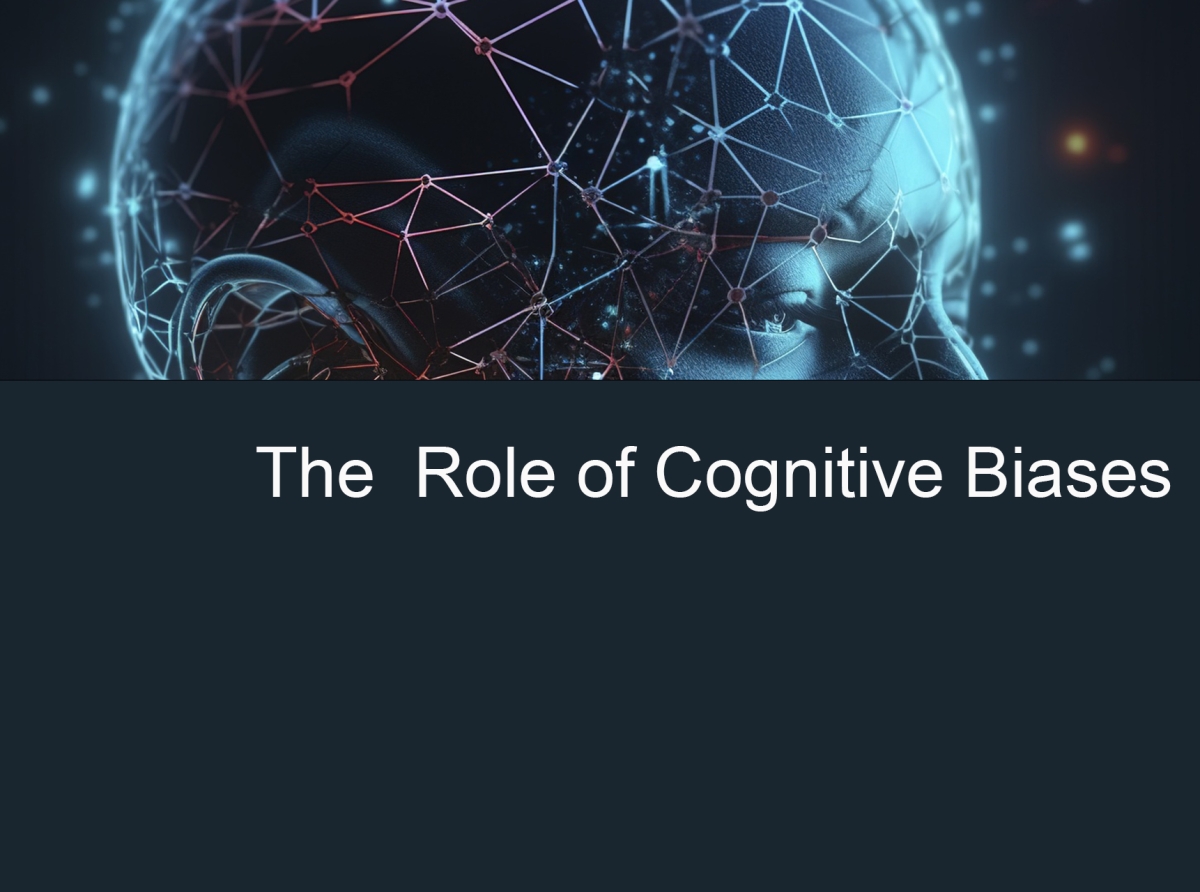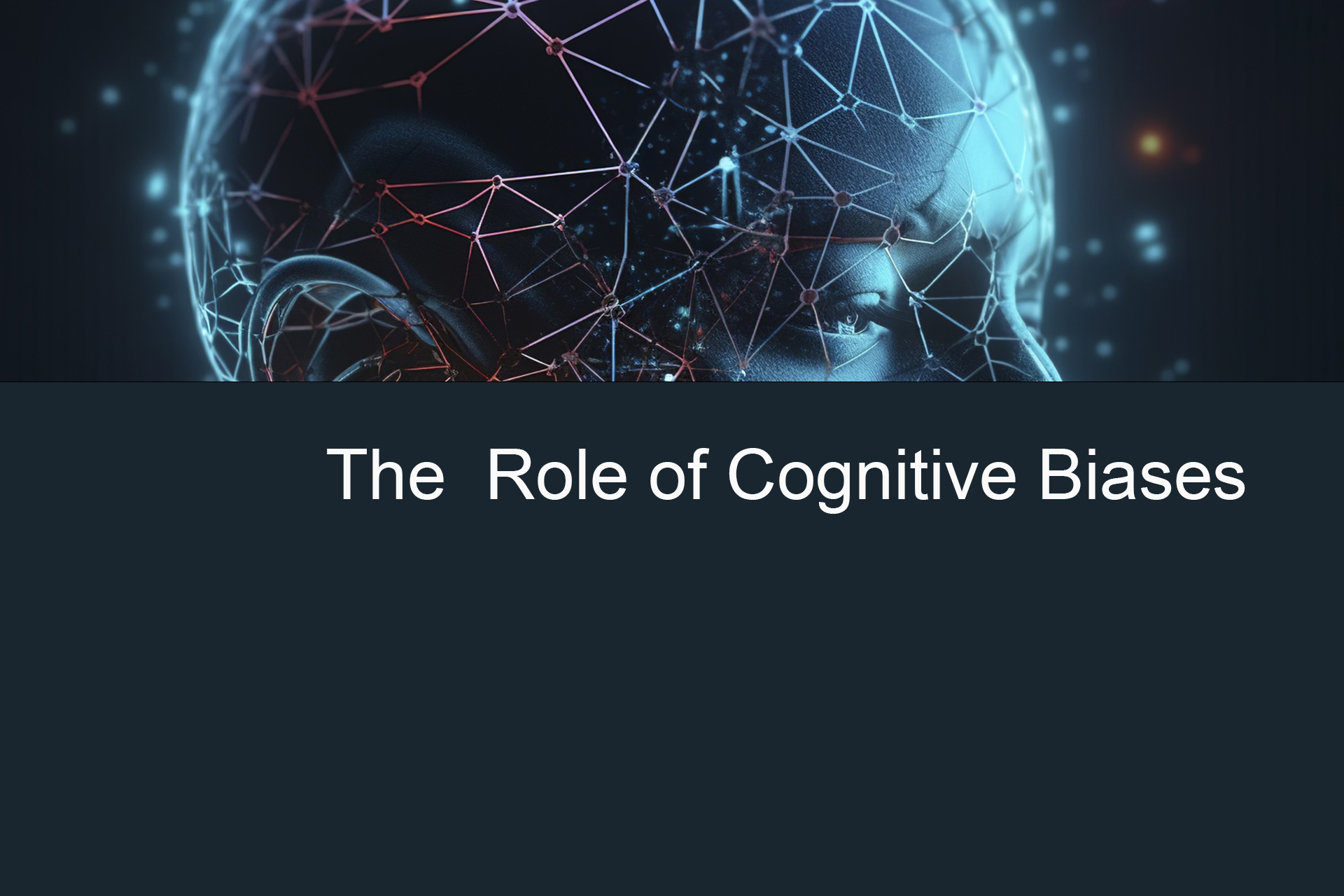The Role of Cognitive Biases in Forex Trading: How to Overcome Them and Make Smarter Decisions

The Role of Cognitive Biases in Forex Trading: How to Overcome Them and Make Smarter Decisions
In the dynamic world of forex trading, where trillions of dollars are exchanged daily, traders are constantly making decisions based on fluctuating market data.
However, these decisions are not always as rational as one might assume. Cognitive biases—systematic patterns of deviation from norm or rationality in judgment—play a significant role in influencing a trader’s decision-making process.
Understanding these biases is crucial for traders aiming to enhance their performance and avoid costly mistakes.
Cognitive biases arise from the brain’s attempt to simplify information processing. Although these mental shortcuts can be helpful in everyday life, they often lead traders astray in the high-stakes environment of forex markets.
By recognizing and addressing these biases, traders can make more informed decisions and improve their trading outcomes.
However, these decisions are not always as rational as one might assume. Cognitive biases—systematic patterns of deviation from norm or rationality in judgment—play a significant role in influencing a trader’s decision-making process.
Understanding these biases is crucial for traders aiming to enhance their performance and avoid costly mistakes.
Cognitive biases arise from the brain’s attempt to simplify information processing. Although these mental shortcuts can be helpful in everyday life, they often lead traders astray in the high-stakes environment of forex markets.
By recognizing and addressing these biases, traders can make more informed decisions and improve their trading outcomes.

The Role of Cognitive Biases in Forex Trading: How to Overcome Them and Make Smarter Decisions
Common Cognitive Biases Affecting Traders
Several cognitive biases commonly affect forex traders:Confirmation Bias: This bias leads individuals to favor information that confirms their existing beliefs while ignoring contradictory evidence. In forex trading, a trader may focus only on data that supports their preconceived notions about a currency pair’s direction, leading to skewed analysis.
Overconfidence: This occurs when traders overestimate their knowledge or predictive abilities. Overconfident traders might take on excessive risk or neglect thorough analysis, assuming they have an infallible read on the market.
Loss Aversion: This bias explains why individuals tend to prefer avoiding losses rather than acquiring equivalent gains. In trading, this can result in holding onto losing positions for too long, hoping for a reversal instead of cutting losses early.
Each of these biases can significantly impact trading behavior and outcomes if not properly managed.
Impact of Cognitive Biases on Trading Decisions
Cognitive biases can lead to poor decision-making and substantial financial losses for traders. For instance, confirmation bias might cause a trader to maintain a losing position longer than necessary because they disregard signals suggesting an adverse trend shift.Similarly, overconfidence can result in excessive leverage use or failure to implement stop-loss orders effectively.
Loss aversion often leads traders to make irrational choices, such as doubling down on losing trades in an effort to recover losses quickly—a behavior known as “revenge trading.”
These biased actions undermine objective analysis and strategic planning, resulting in avoidable drawdowns and missed profit opportunities.
Strategies for Identifying and Mitigating Biases
To combat cognitive biases effectively, traders should adopt specific strategies aimed at identification and mitigation:Self-Awareness: Becoming aware of one’s own tendencies toward certain biases is the first step toward overcoming them. Traders should regularly reflect on past trades to identify patterns indicative of biased decision-making.
Journaling: Maintaining a detailed trading journal allows traders to document their thought processes behind each trade, providing valuable insights into how cognitive biases may have influenced past decisions.
Seeking External Feedback: Engaging with fellow traders or mentors for feedback offers alternative perspectives that challenge personal biases and promote objective evaluation of market conditions.
Implementing Informed Decision-Making Practices
To make smarter decisions free from cognitive distortions, traders should emphasize disciplined approaches grounded in data-driven strategies:Adopt a Systematic Approach: Developing a well-defined trading plan with predetermined entry/exit points helps eliminate emotional responses driven by cognitive biases during volatile market movements.
Utilize Technological Tools: Leveraging algorithmic trading systems or analytical software ensures that decisions are based on quantitative analysis rather than subjective judgment clouded by bias.
By integrating these practices into their routine operations within forex markets—an arena notoriously influenced by psychological factors—traders position themselves for greater success through enhanced objectivity and reduced susceptibility toward detrimental cognitive distortions.
In conclusion,
recognizing the pervasive influence of cognitive biases empowers forex traders not only with tools needed for improved decision-making but also fosters resilience against emotional pitfalls inherent within financial markets’ fast-paced environments—ultimately enabling them achieve sustained profitability over time while navigating complexities inherent therein effectively!
Forex trading, Cognitive biases, Decision-making, Behavioral finance, Overcoming bias









Report
My comments